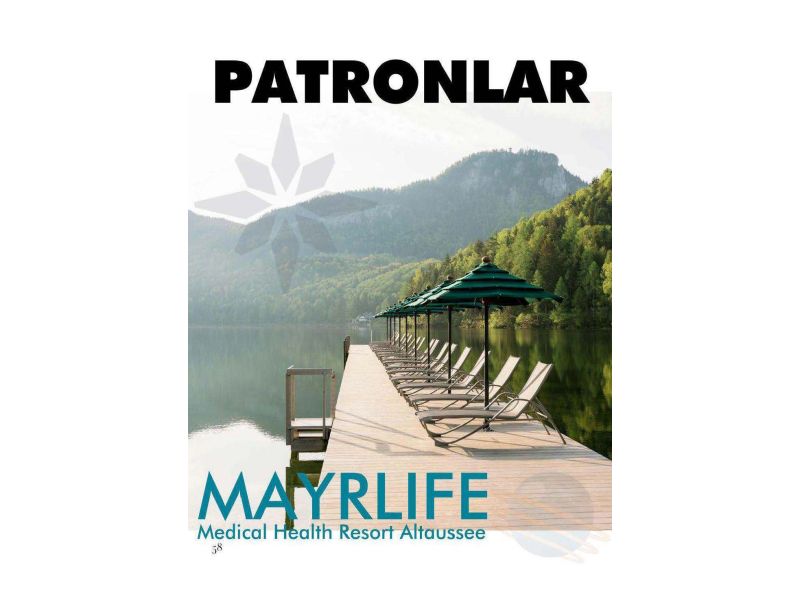Stress Load - How Much Stress Do People Need
The term “stress” has become an everyday concept in our use of language. Indeed, as a result of the developments of our time – the pressure of deadlines, constant availability, the need to perform – we seem to be subject to much more stress than we used to. Find out in this article how it comes about and why it is actually necessary for us.

General stress load is on the rise, and the concept of stress has become commonplace in our language. Due to the developments of our time - deadline pressures, constant availability, performance expectations - we seem to be under much more stress than before. How it arises and why stress is even necessary for us, you will learn in this article.
Stress Load or Actually a Driving Force for Peak Performance
Stress is indeed a double-edged sword: It can be good for us and drive us to peak performance. However, it can also be bad and harm our health. Namely, when the load becomes too much. The "father of stress research," Hans Selye, discovered this phenomenon in the 1950s. He came up with the terms eustress and distress. The prefixes derive from Greek, with "eu" meaning "good" and "di" meaning "bad".
We all know examples of positive stress, such as the drive when you are excited to start a new project or the good feeling when you have accomplished something. This signals positive stress. However, if you feel overwhelmed by a task, because, for example, you know you lack the personal resources to cope with it, or if certain requirements have simply become too much for you, then we speak of negative stress or distress.
Stress Is Always Neutral Until We Evaluate It
Dr. Schubert, Medical Director at MAYRLIFE Medical Health Resort Altaussee, explains that stress is fundamentally neither "good" nor "bad": "Stress needs to be viewed much more differentially. Basically, it is neutral and, from a physiological perspective, merely an activation of the sympathetic nervous system in our body. This is the part of our involuntary (autonomic) nervous system responsible for activity and drive.
It enables us to become and remain capable of acting and performing in challenging situations. The body's stress reaction: Our blood pressure rises, pupils dilate, and blood coagulation improves, which supports us in summoning up peak performances. It is our own individual evaluation of stress situations that actually places a stamp on stress and determines whether it is positive or negative."
Stimuli that activate the sympathetic nervous system are called stressors. While in ancient times, it might have been a saber-toothed tiger triggering stress reactions in us, nowadays, it might well be deadline pressure, interpersonal conflicts, or worries. The crux is that the activation of the sympathetic nervous system still occurs today as it did back then, but nowadays we often lack the means to adequately reduce our physical stress reactions.
Whereas it used to be vital to flee from a saber-toothed tiger to survive, such a flight response is often not possible today. It would probably not be well received if we fled the room in a panic when the boss merely overloaded us with work, or if we started a fight to express our anger (stress). Though this might indeed be conducive to reducing stress. The often prevailing lack of exercise does its part to gradually increase the stress level in the body and eventually be "the final straw".

Stress Hormones - The Conductors in the Stress Process
In short-term stress situations and acute stress, it is mainly the hormones adrenaline and noradrenaline that are released by the adrenal gland and prompt us to literally "crank it up a notch." "Stress per se is therefore always initially something good," explains Dr. Schubert. "It is decisive for our own inner drive and allows us to tackle and manage tasks. Without a certain degree of stress, i.e., without the activation of the sympathetic nervous system, this would not be possible at all."
That's why endorphins (known as happiness hormones) are also present during the initial release of stress hormones. They make us feel prepared for the stress load – which, in most cases, we are. Dr. Schubert also describes this as a kind of protective mechanism of the body. Since the body prepares itself through the release of endorphins to continue to endure the respective stress load, whether noise, time pressure, arguments, or similar, because it believes that the time of relaxation will eventually come afterwards.
However, if a stress situation lasts too long or even becomes chronic, the stress hormone cortisol is released by the adrenal cortex. If relaxation then remains absent - or comes simply too late - it may happen, for example, that we get sick during our vacation. Because relaxation also needs energy or resources. If these are no longer available due to constant overload, the system eventually collapses, and the body reacts with illness. The time during vacation is predestined for this because the body lacks the resources to deal with the rapid reduction of stress mechanisms appropriately.
Outsmarting Stress with Higher Stress Tolerance
Stress, or more precisely the activation of the sympathetic nervous system, is the source of our personal drive. Not without reason is it said "Necessity is the mother of invention," because often the best or most creative solutions arise only through a certain amount of suffering. "The fact is, however, that stress, or admitting that one is no longer able to cope with demands, is still a taboo topic in our society," Dr. Schubert gives pause for consideration. "Many of our guests, for instance, are not even aware of their stress level, which is generally already very high. Managers often think they are not under stress because, after all, they enjoy their tasks. But even too much positive stress ultimately needs to be treated."

The best strategy in these matters is to improve the ability to relax and thus outwit the stress, so to speak. "The more relaxed you are, the more resilient you are to stress," notes Dr. Schubert. At MAYRLIFE, this is the special focus of our Stress Control Program.
Whilst the basis, like in every other MAYRLIFE program, is intestinal cleansing, the Stress Control Program is particularly distinguished by the fact that relaxation methods such as yoga, meditation, and Yoga Nidra are practiced and taught, as well as emotional coaching or psychological conversation therapy. They all activate the counterpart of the sympathetic nervous system, the parasympathetic nervous system. It's the part of the autonomic nervous system that regulates heartbeat and breathing during the relaxation phase, controls digestion, and enables our regeneration. It initiates the buildup of energy reserves in the body and metabolic processes.
To assess a guest's stress tolerance baseline, the so-called MAYRLIFE Stress Test is conducted. After a certain time on the ergometer, parameters for the acid-base balance and the concentration of minerals in the body are measured. Deviation from baseline values provides insights into the individual stress tolerance of the guest.
But also questionnaires and measurement of heart rate variability (HRV measurement) cast light on individual stress competence, i.e., the ability to deal with stress. In addition, Functional Myodiagnosis can be used to investigate how stressed the adrenal gland is. Deficits can be compensated for by administering micronutrients such as vitamins and trace elements.

Reduce Stress Hormones for the Right Stress Balance
The challenges of our time often make it difficult for us to perceive our needs accurately and respond to them appropriately. Frequently, it's quite simply not possible to immediately give in to the process within us that wants to trigger "flight or fight." Regular exercise and sports sessions can help reduce stress.
"It's important that this compensation does not flip over into the negative again but actually serves as a balance for the stressed individual," Dr. Schubert points out. "It makes little sense if a top manager thinks they have to achieve peak performances in their sports sessions, even in their free time. It is much more important, for example, to relearn to perceive your own needs in order to sense the right amount of exercise and relaxation. More self-respect and knowing and respecting your own limits are most important when it comes to reducing stress appropriately."
Sources
Schmid Norman, 2020, Mein Weg in die Entspannung [My path to relaxation], 2nd updated edition, maudrich publishing house, Vienna
Awarded 'Best Medical Spa Worldwide'

World Luxury Spa Award 2023
World’s Best Luxury Medical Spa

Seven Stars Luxury Hospitality and Lifestyle Awards 2022
Best Medical Wellness & Longevity Resort

Condé Nast Readers’ Choice Awards 2022
Best Destination Spa

European Health & Spa Award 2024
Best Medical Resort

Haute Grandeur Global Awards 2024
Best Medical Spa in Europe



